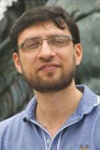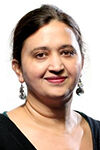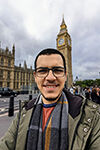Research staff
4 items found, viewing items 1 to 4.
-
Dr Mariam Adedoyin-Olowe
Programme Leader – MSc Artificial Intelligence
Mariam is Programme Leader of MSc Artificial Intelligence at Birmingham City University. She is also a researcher in the field of Data Mining/Data Analytics/Data Science. She obtained her PhD degree in Computing Science from the School of Computing Science and Digital Media (IDEAS Research Institute) of Robert Gordon University...
-
Professor Atif Azad
Professor of Artificial Intelligence
The work of Professor Azad furthers the National Artificial Intelligence Strategy, UK Digital Strategy, and BCU's 2025 strategy for creating an inclusive digital economy, closing the digital skills gap, partnership building and decreasing underrepresentation of various demographics in the tech industry via some flagship...
-
Professor Jagdev Bhogal FBCS, SFHEA
Professor of Computer Science
Jagdev is an experienced lecturer whose main teaching area is Database Systems. Jagdev has published conference and journal papers on relational/object/nosql database systems, ontologies, text mining and cloud computing.
-
Usama Zidan
Visiting Lecturer
Usama is a PhD Researcher at the Data Analytics and Artificial Intelligence Centre and a Visiting Lecturer at Birmingham City University. Usama’s Doctoral Research is mainly in the area of computer vision, specifically in the areas of image classification and segmentation. His supervisors are Professor Mohamed Gaber and ...
4 items found, viewing items 1 to 4.



